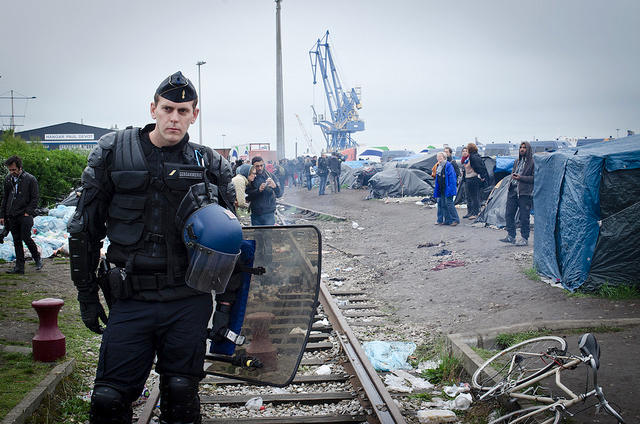As was inevitable, the upcoming referendum on the UK’s membership of the EU has exposed deep divisions in the Conservative Party. For an exercise that appears to have been intended to finally allow the party to move on from its endless civil war on Europe, the referendum appears to be making matters much worse. But the issue is much more profound than simply whether the UK should stay in the European Union; it concerns the very nature of what conservative politics means.
For all the arguments for and against the EU, there is one argument that is simply incontrovertible: if the UK were to exit, it would lead to months or years of uncertainty. The outcome of what would undoubtedly be a protracted series of incredible complex negotiations with Europe and other countries over issues such as trade and immigration cannot be predicted in advance. While conservative Brexiters may have a long-term vision in mind of what the UK’s place in the world could be post-brexit, they cannot determine what the short to medium-term consequences would be.
There hasn’t been enough recognition of just how extraordinary it is that a significant proportion of those who call themselves conservatives are willingly embracing a course of action whose outcome cannot be forseen. This is a sign of how far right-wing politics is becoming disengaged from anything that could meaningfully be called conservatism, even if right-wingers in the UK often support a party that bears the name.
It is useful here to isolate something that one might call ‘literal conservativism’ – a political practice that is suspicious of change and wishes to conserve what are seen to be tried and tested political and social structures. As someone who identifies with the left, this practice by definition involves retaining structures of power that are anathema to me. Conservatism of this kind treats contingent oppressive hierarchies as if they were divinely ordained and natural.
Yet there is something in literal conservatism that is much more valuable, even to those of us who yearn for liberating social change: a deep appreciation of the unintended consequences of human action. This is, after all, a central theme in Edmund Burke’s Reflections on the Revolution in France. A foundational text in conservative thought, Burke’s dystopian predictions of how the revolution would play out were accurate. Of course, one might still see the revolution as ultimately liberating and essential, but the jaundiced conservative gaze on the French and other revolutions does, at the very least, force us to recognize that the process of liberation can often descend into out of control, violent oppression.

More generally, literal conservatism reminds us – ironically enough – of the truth of Marx’s dictum that ‘men make their own history but they do not make it as they please.’ While Marx was referring here to the overarching power of the dialectical process of historical materialism, conservatism deals with something much more fundamental: that in an unfathomably complex world, human attempts to change the world have consequences that cannot always be forseen. While one can disagree with the conservative lessons of this insight – that, since change is so perilous, one should not attempt it – even those of us who think that some problems are too serious not to address can sometimes do with a dose of conservative realism.
In the last few decades, while the old sanctification of pre-existing power structures is still very much a part of right-wing politics, the suspicion of human agency is being jettisoned. Two examples of this phenomenon should suffice: The neo-conservative enthusiasm for the second Iraq war was nothing if not a demonstration of the new right’s belief that one can change the world through a few choice actions without having to consider the possibility that there might be unintended consequences. Similarly, the difficulty that many on the right have with accepting that human action can change the climate is a sign of their refusal to accept that uncontrolled development can have negative outcomes.
And so we come back to the EU referendum. One can see in the sheer passion of the pro-Brexit right a yearning for action, for change, for sovereignty. The intense yearning overwhelms the old conservative suspicion towards what happens when human desire bursts through the barriers of order. There is, in short, nothing that is conservative about the right’s desire to leave the EU.
There are, of course, some serious arguments for the UK leaving the EU. Both left and right proponents of Brexit do present important critiques of the EU’s lack of accountability, its unfathomable bureaucracy, even its corruption. But while for the anti-EU left there is at least some kind of political consistency in arguing for radical change, the anti-EU right’s embrace of radical change is more mendacious. While the right has progressively jettisoned its conservativism in recent decades, this has not been accompanied by recognition of the potential costs. In the case of the EU referendum, this leads to a kind of fantasy politics in which the pro-Brexit right argues we can have it all – a brave, new, sovereign future without the inevitable, unpredictable turbulence.
And that is what is so dangerous in the referendum: whether or not the UK votes to leave the EU, a substantial proportion of the country has been convinced that we can change the world without cost, and that there is no such thing as unintended consequences. Whatever happens on 23 June 2016, the eclipse of literal conservatism will hurt even those of us who are not conservatives.
Photograph courtesy of 70023 vs 2009 and Dylan Jeavons. Published under a Creative Commons license.





